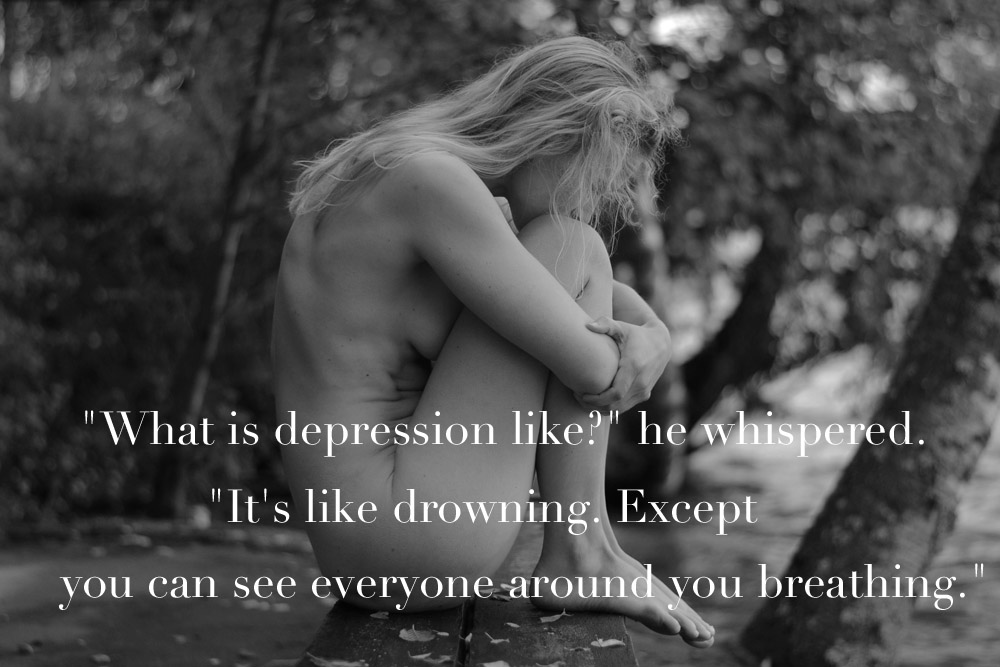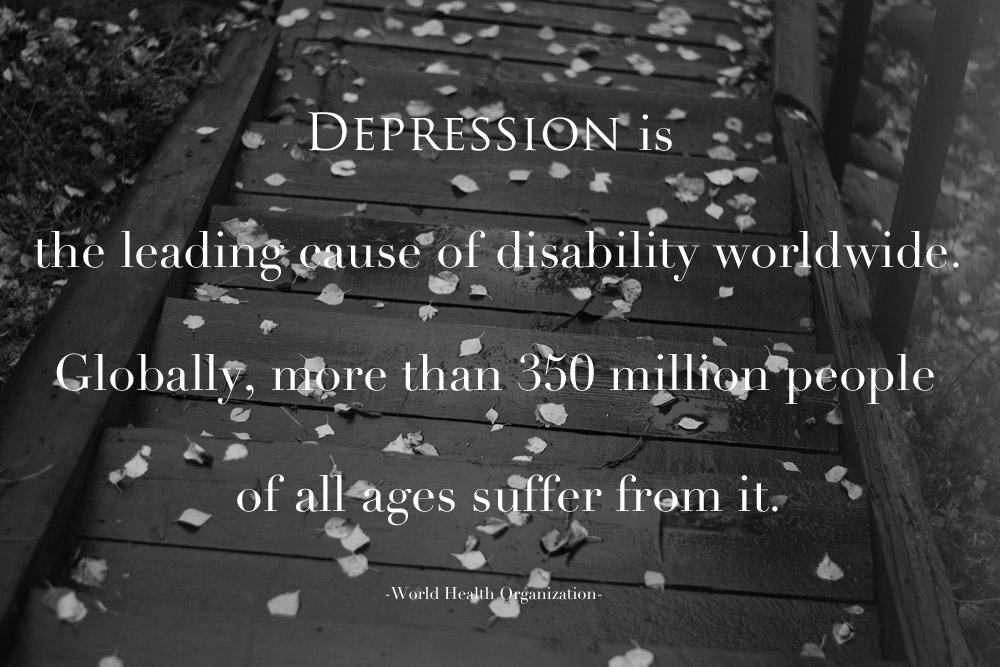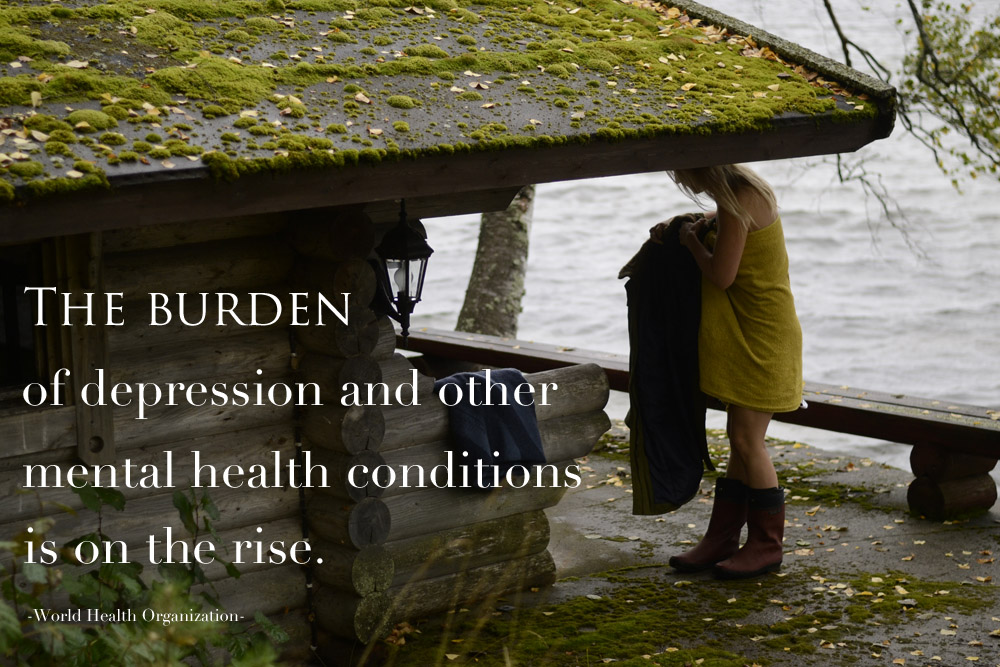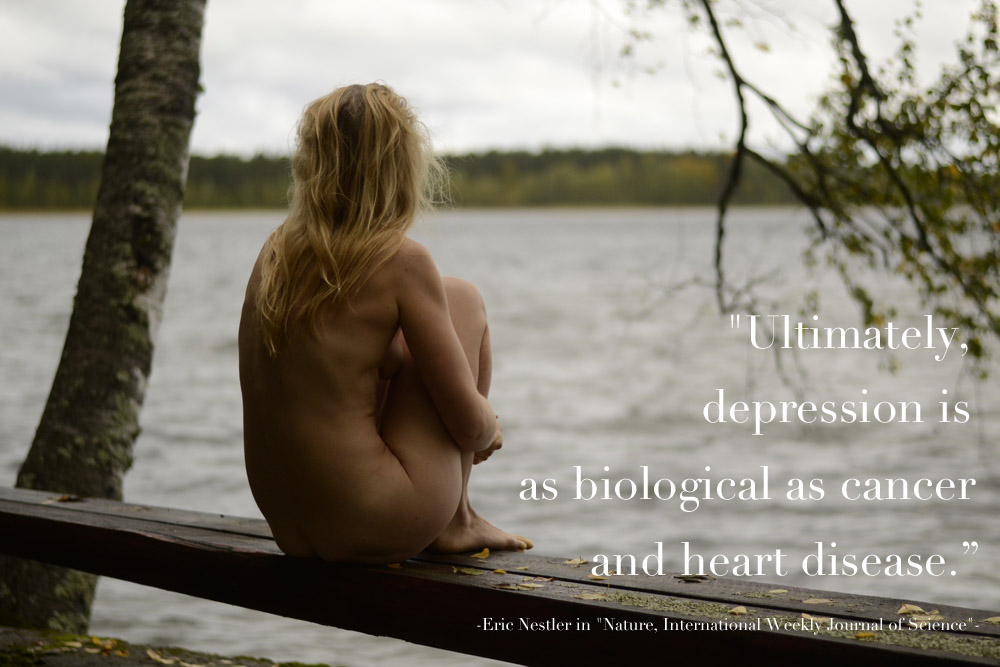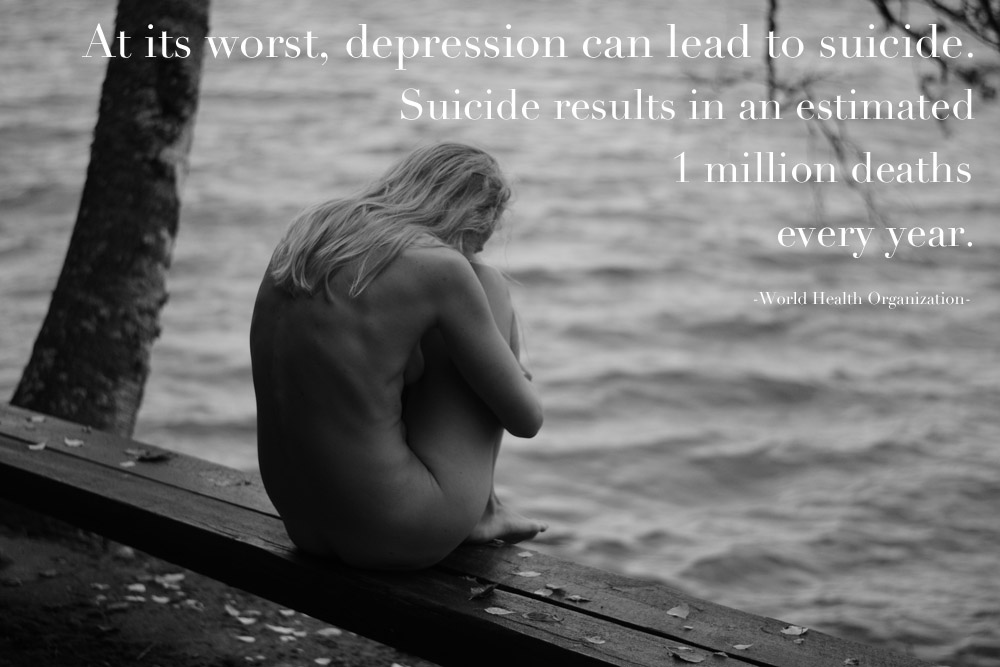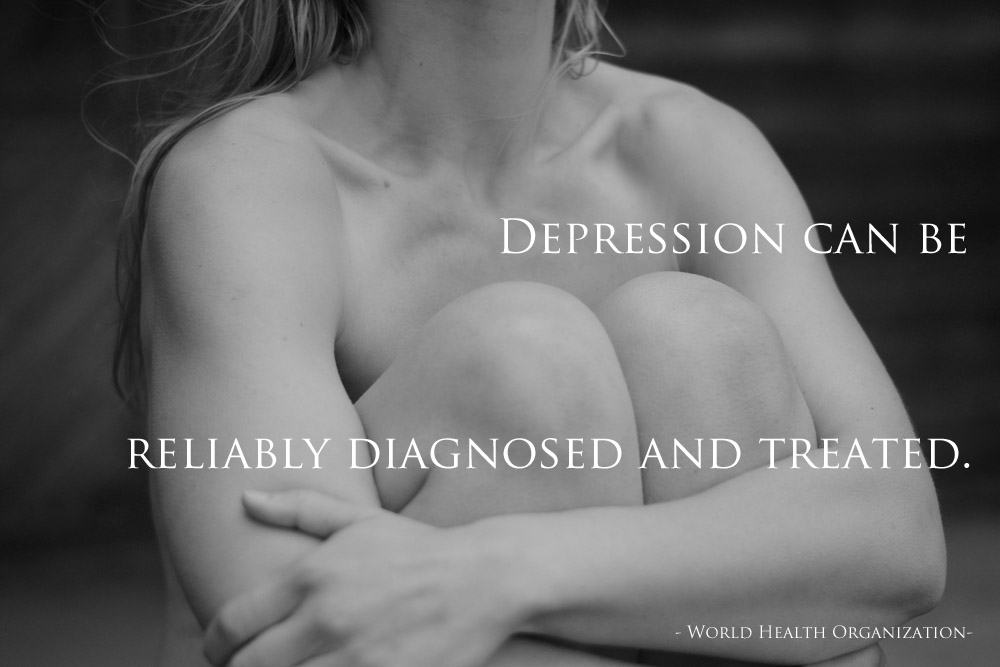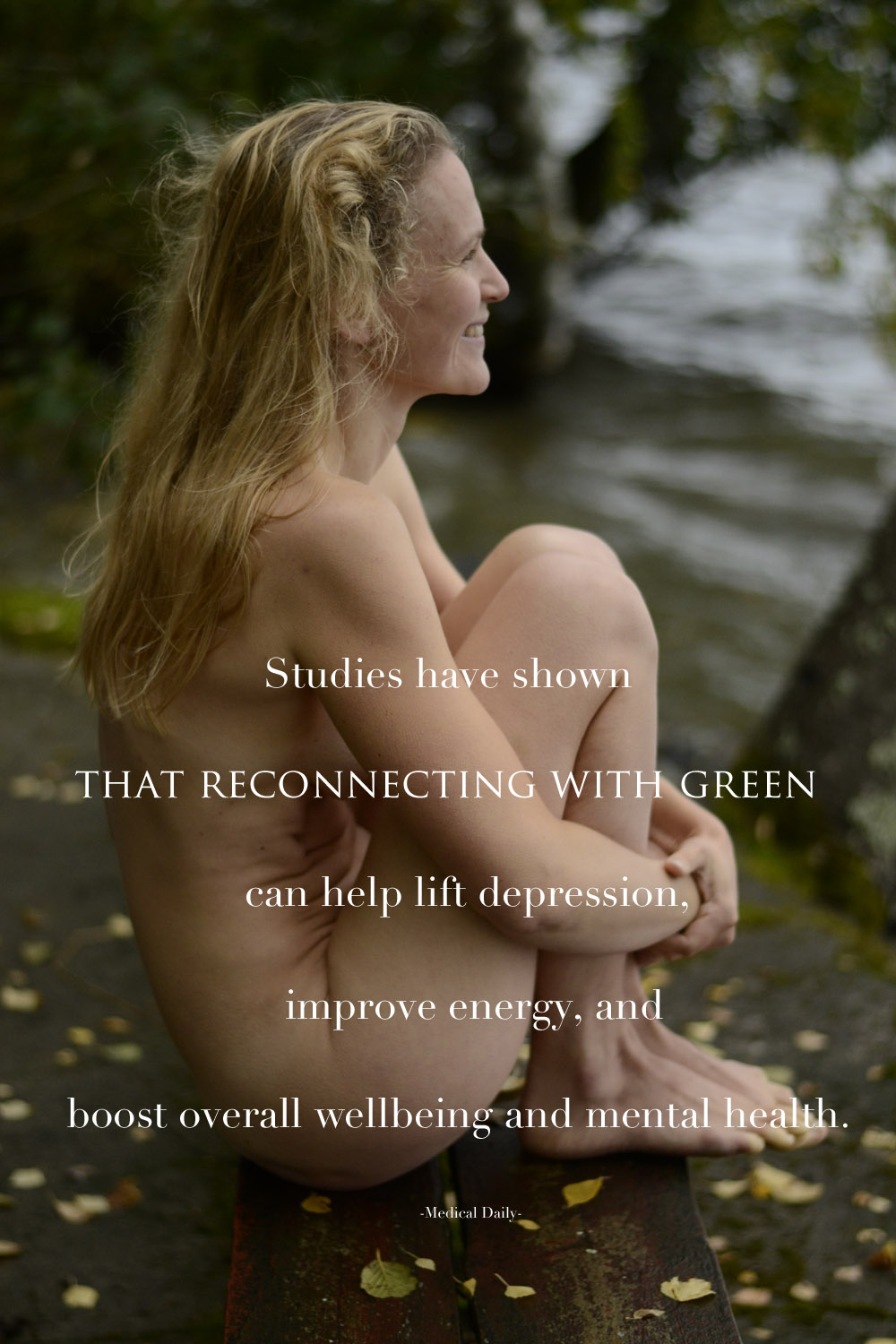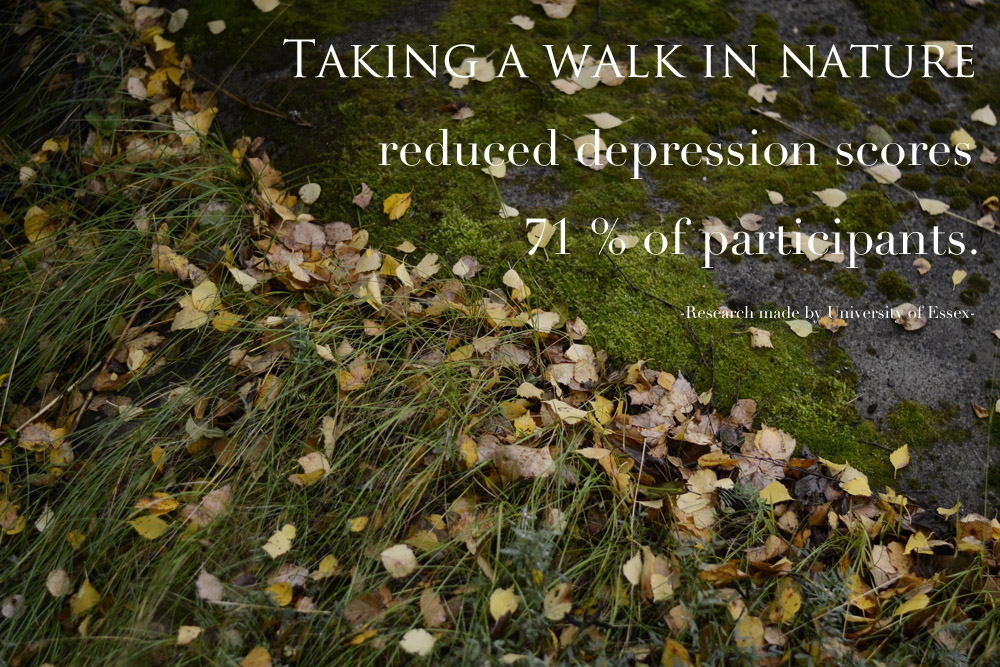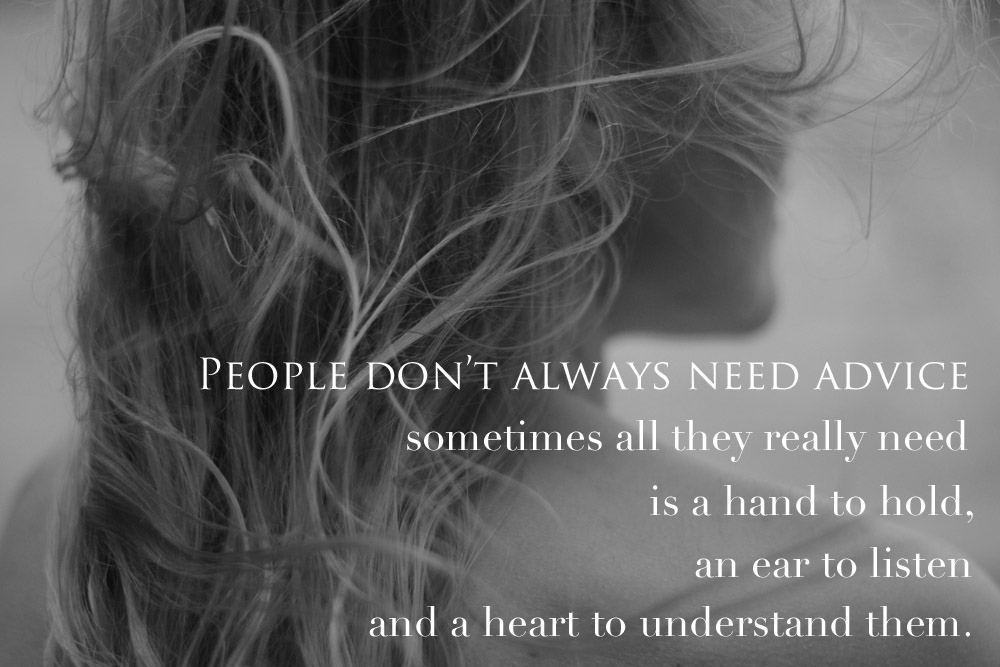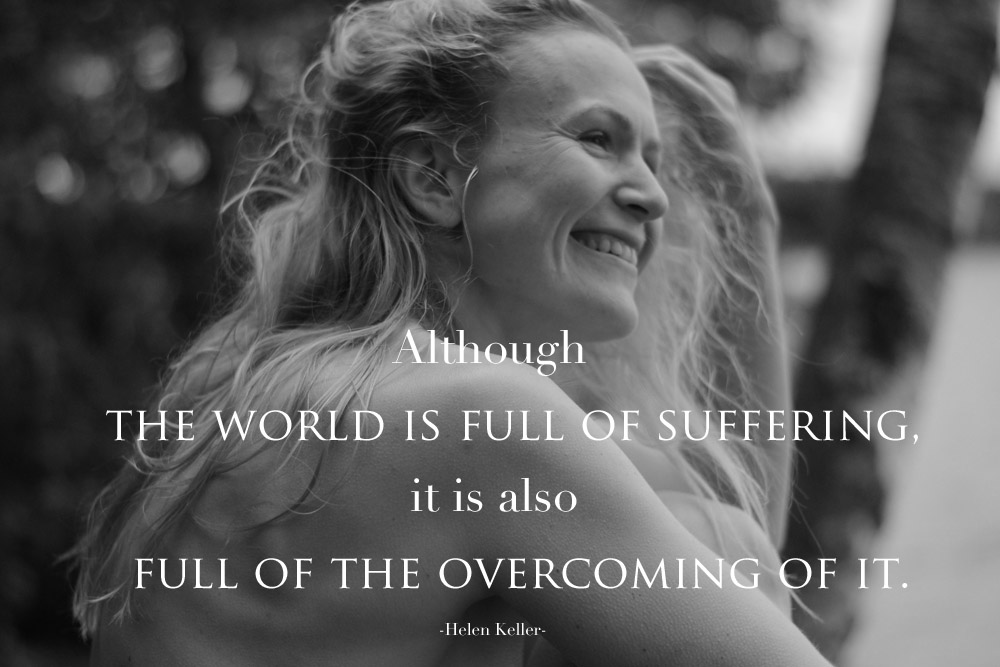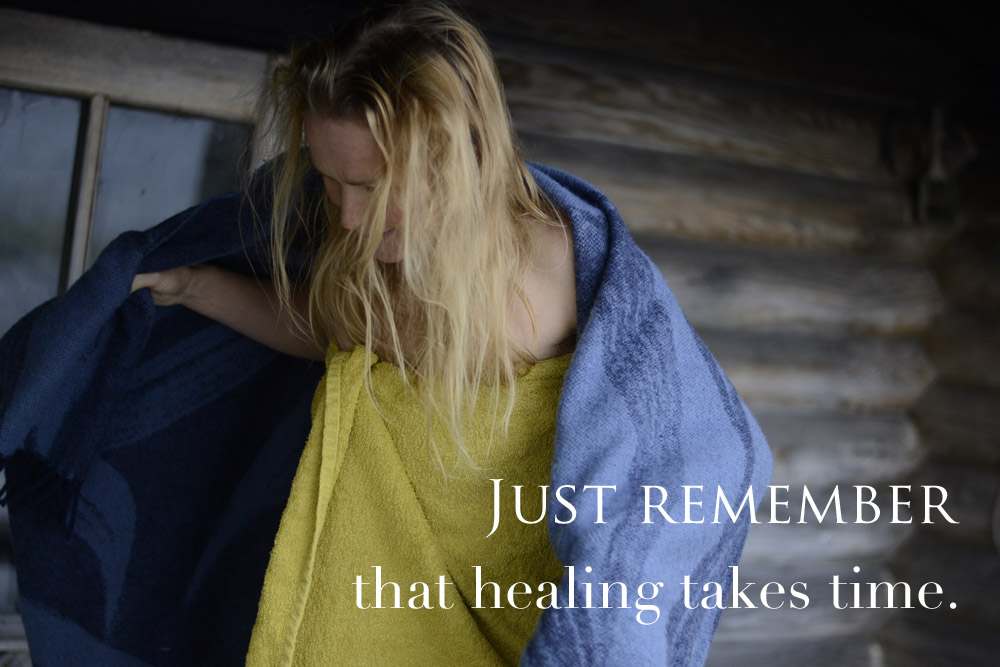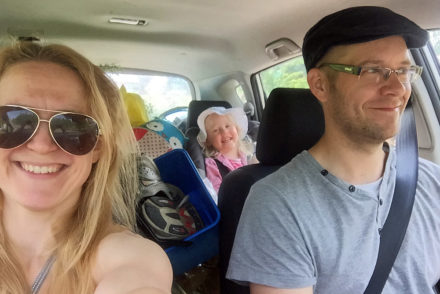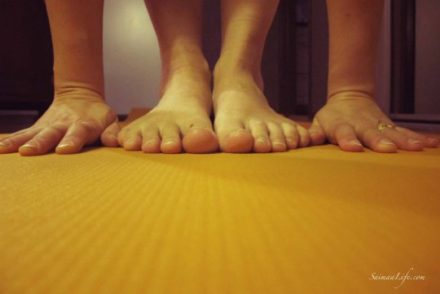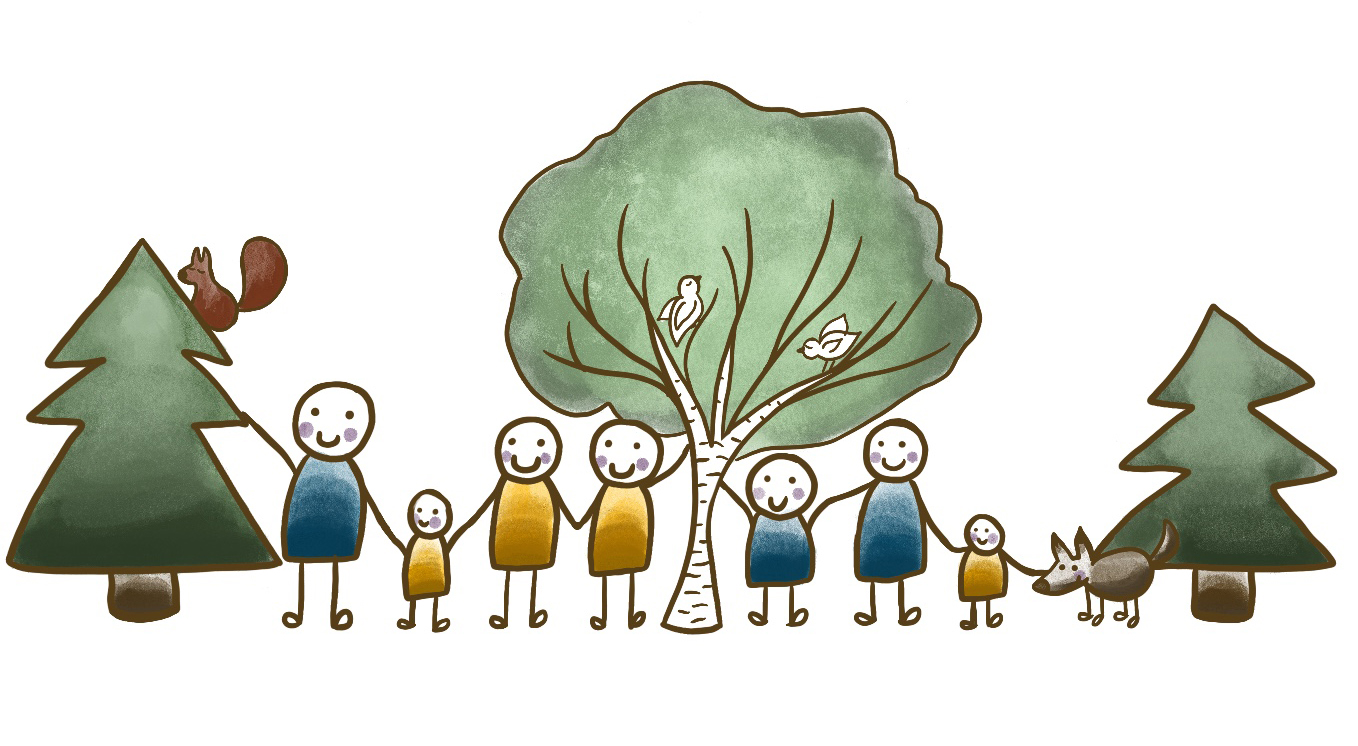”It could have been me.”
Three years ago I got an email from my reader. She thanked me for my blog that had given her comfort after her friend had committed a suicide.
Today I’m telling you Liz that it could have been me two years ago. It’s a horrible thought but it really could have been me too.
But I’m still here. And now when I personally know how serious and complex depression is, I feel important to share this story of mine.
Bad things happen in life. When things are bad enough, they become traumatic. Luckily human mind is wise. If something happens that is too difficult for it to handle, it protects us. Our mind has an ability to shut things out from our consciousness.
The bad part is that those things don’t just magically disappear. But if you’re lucky, you may become conscious of your burdens and get a chance to get rid of them.
But it’s not the moment when the sun starts to shine in your life. It’s the moment when the real battle begins.
I’m the lucky one. I’m also the one who got depressed in her battle. I might have lost my battle if I wouldn’t had a change to be 1 of those 10 000 Finns who are annually given a change to have free psychotherapy.
How did I got to be among those people? Because at the moment when my thoughts started to be blacker than black, I was supported by my husband and closest friends and I managed to call a doctor.
I said it out loud: “I have suicidal thoughts. I need help.”
Those words led to a chain of events that opened up a chance for me to go through all my life with a psychologist. And to find a way out from my dead-end.
It is said that depression results from a complex interaction of social, psychological and biological factors. Often it is a combination of many reasons and develops over a long period of time.
My past, my life situation and my personality all included things that exposed me to this illness that many doctors call “inflammation in the brain”. Afterwards it felt so obvious and logical that I got depressed.
Now it feels natural too that I had suicidal thoughts when things were at their worst. Those thoughts are just your mind’s way to desperately seek for a way out. If your brain can’t find any other way, it starts to think about the final way.
Some say that people who have committed suicides were weak. I say “they were not”. They were just humans who needed help for their illness. Just like cancer patients.
Despite the treatments, cancer patients can lose their battle. So can depression patients. And the death of those people has nothing to do with them being weak or inferior to others. It only tells how hard life can be.
It also tells about the importance of taking care of, not only our physical, but mental wellbeing too.
And asking help if we notice symptoms that we can’t deal with just by ourselves.
If you have an illness, you probably have symptoms. What were mine?
Mental symptoms of my depression:
- Feelings of worthlessness: “I’m not worth of anything” kind of thoughts.
- Total lost of self-esteem: “I’m bad at everything and useless.” kind of thoughts.
- Self-destructive thoughts: Like “It’s better for all that I’m not here. I’m just a burden”.
- Lost of ability to feel joy and pleasure: Someone said that you’re depressed when all things are good in your life but you are totally numb to the world. I agree with that.
- Concentration problems, slowness, trouble of remembering things: Your mind just doesn’t work. All your energy goes in keeping your head together.
Physical symptoms of my depression:
- Physical fatigue: Taking just a few stairs up made me totally exhausted.
- Appetite changes: I lost all my appetite in the beginning. In the end it was other way around.
- Oversleeping: Physical tiredness that has nothing to do with sleep debt.
- Unexplainable muscle, nerve and joint pain: My experience is that depression is not only inflammation in the brain, it’s also inflammation in your whole body.
Depression can be mild, moderate or severe. The strength of the symptoms goes hand in hand with the seriousness and the phase of the illness. Sometimes it’s hard to make a difference between depression and natural grief or severe stress. After being depressed I can only say that there is a big difference.
If you want to read more about the topic here’s a good helpguide to depression symptoms and warning signs.
The vicious circle is complete when the symptoms start to feed the illness. That’s why it’s good to take care of even the mild symptoms.
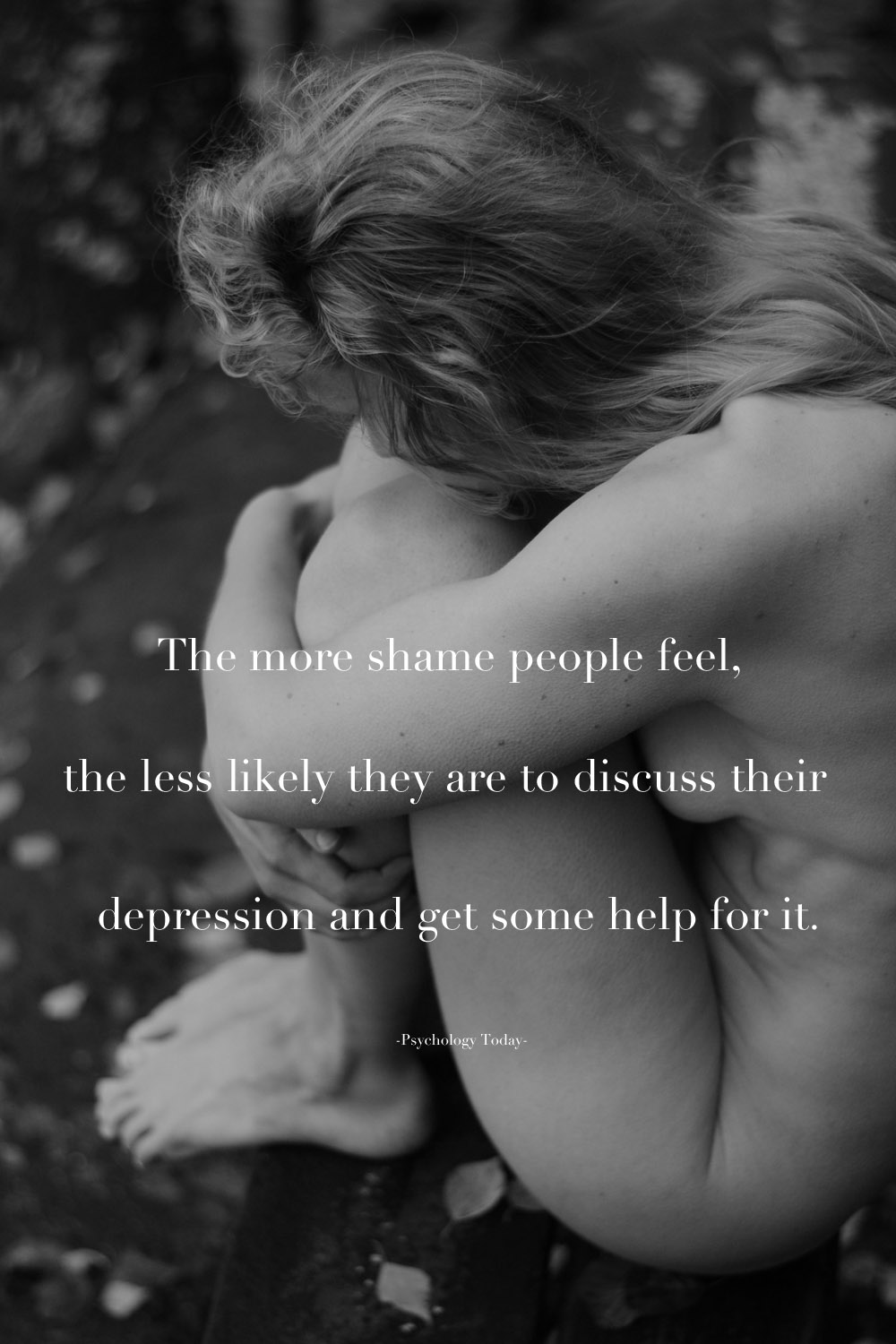
Two things that I found hard to handle during my depression were fear of stigma and shame. A few words about the first one.
When I had just barely survived the worst phase of my depression I heard a woman saying “Everyone goes to therapy! People can’t stand anything nowadays!!”.
The comment made me realize that you have to be very strong to talk about your mental illness when the chances of being judged are so big.
If you get that stigma of mental illness on your shoulders, the cruel fact is that it may cause you a lot of extra challenges in social and working life for a very long time. It may even be attached to people close to you.
And even if you would had been healthy already for years, the stigma may stay with you. That’s why it’s crucial to work for yourself for so long that you grow out of the fear.
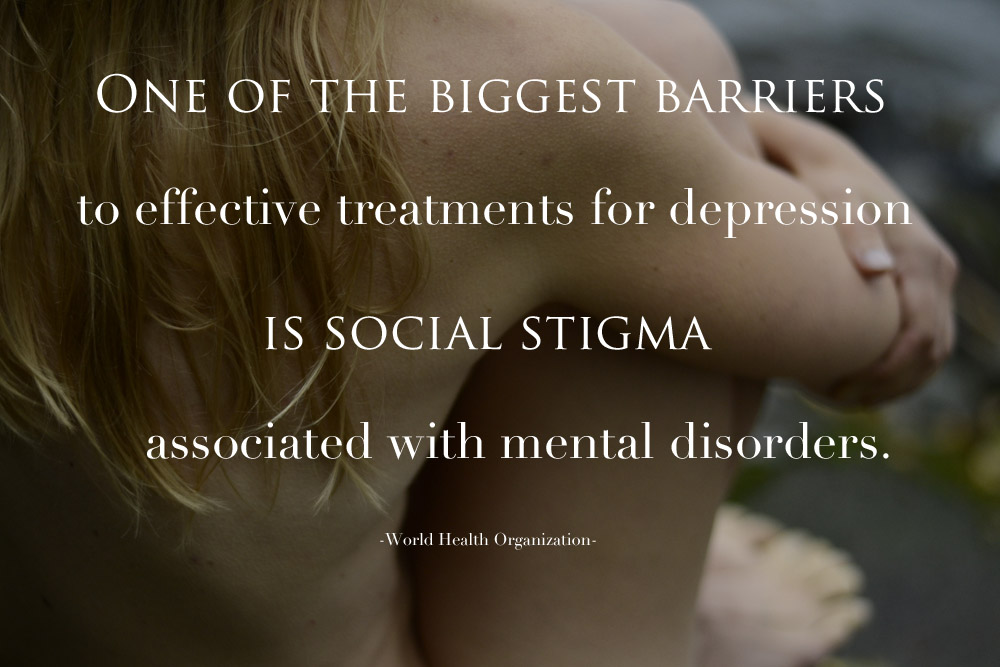
Stigma and shame go hand in hand. Just think about it:
Which one of the sentences you’d rather say to your boss: “I have a tumor in my belly and I need sick leave to get the surgery.” OR “I’m mentally ill and I need sick leave to go for an intense therapy.”
No, mental illnesses are not something you want to share with everyone or put in Facebook. They are something we still shame a lot.
It’s easy to say to your friend that there’s nothing to be ashamed about depression but when it hits you personally, then you really know that things are not that simple.
Here are some examples about the shame I have experienced:
- I was ashamed of to call a doctor and open the door to psychotherapy.
- I was ashamed of having suicidal thoughts because I had so many good things in my life.
- I was ashamed of being a burden for my spouse.
- I was ashamed of being an imperfect mom during my dark phases.
- I was ashamed of not being able to be as social and energetic as I wanted to be.
- I was ashamed of being a financial burden for my country.
You can’t talk about depression without talking about shame. It also makes recovering much more challenging. Just like the fear of stigma.
Gladly, things are changing a bit. More and more people are talking about their mental illnesses. It’s great because shame grows in silence. The more we talk about things we are ashamed of, the faster the shame fades away.
When we are not ashamed of something in us, that something doesn’t define us anymore. We become free and that is very important for a relaxed, balanced and healthy life.
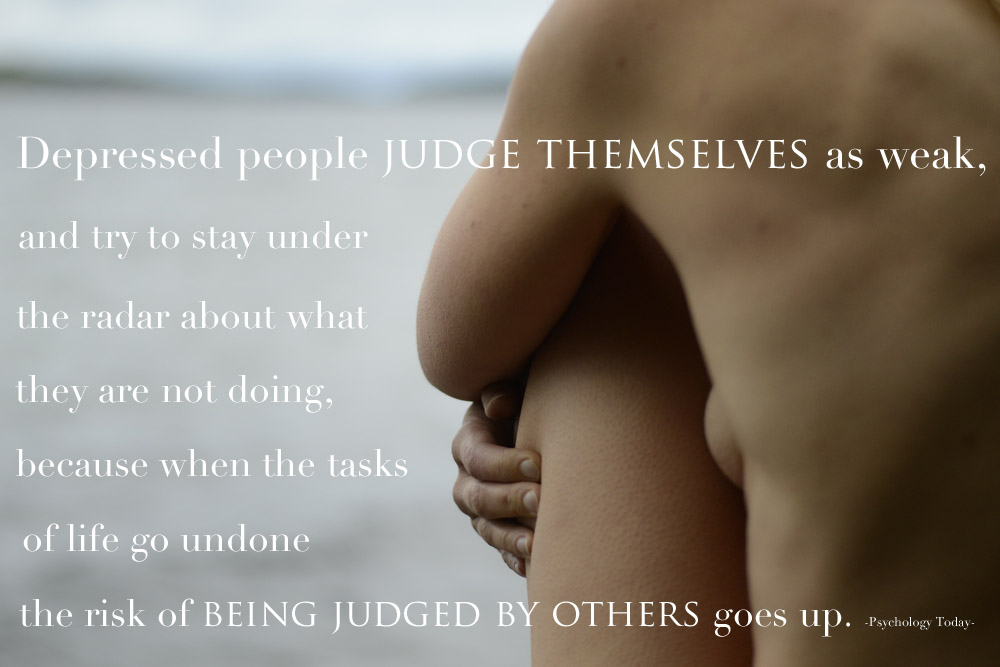
My depression has also taught me that in a world that adores funny, energetic and social people, it’s not easy to be depressed.
It’s not easy to be incapable of working and being efficient in a world that so highly values work and money-making.
I’ve personally gone through a phase where I was in front of the question: How long it is ok to be ill? And got more depressed when I felt that my recovering didn’t proceed fast enough.
Healing from severe illness is a long process. If you want to recover totally and prevent the same happening to you again, the process is even longer.
Compassion and patience are things worth practicing when you’re depressed. They are valuable skills for not only in healing but also in protecting you from getting ill again.
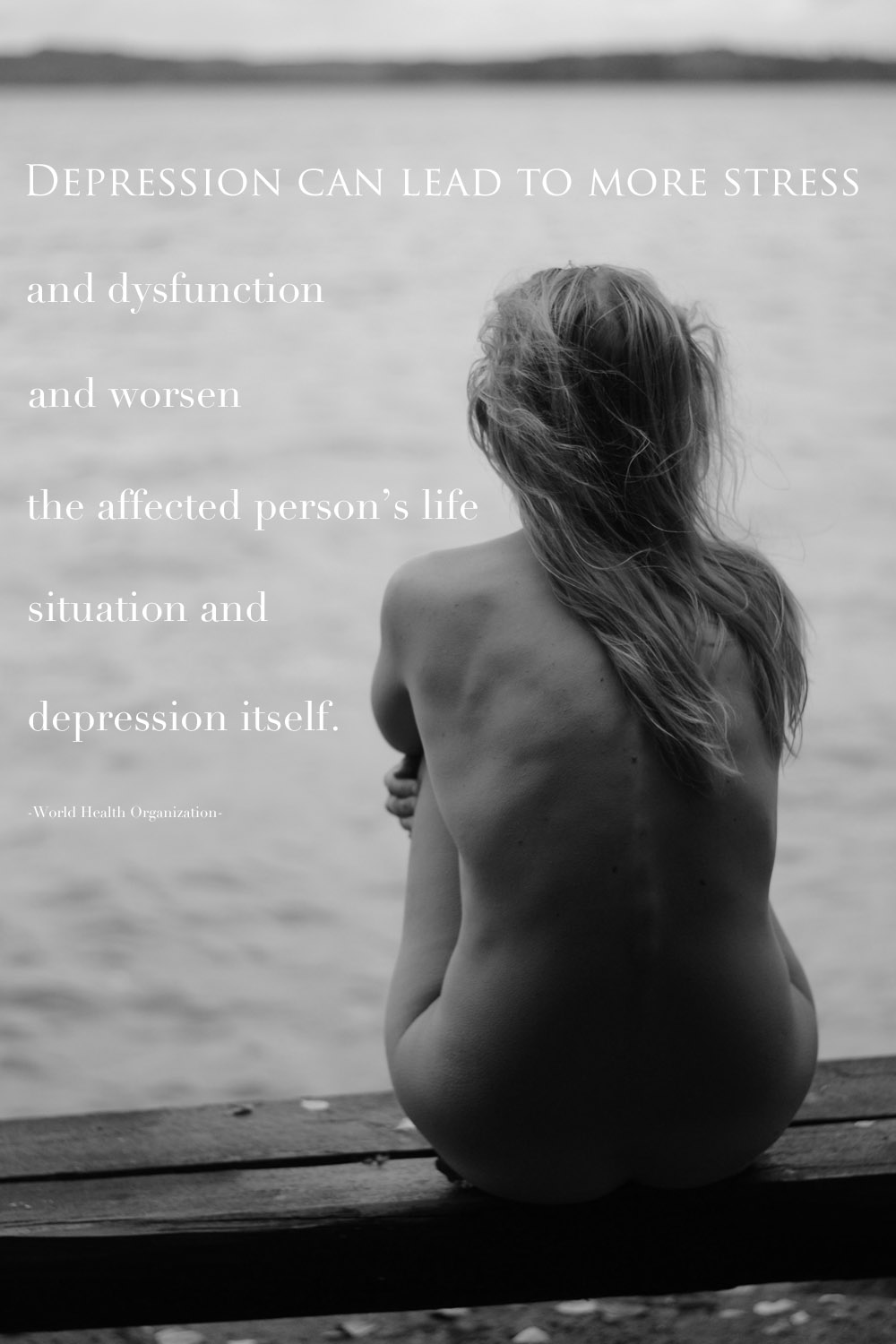
But it’s not all bad. There are good and bad times in all illnesses. And the more you heal the longer and better are the good times.
My good treatment made it possible for our family to live ordinary life most of the time during my depression. Of course bad phases were tough. But family life is seldom perfect.
If we want to teach our children that it’s OK to be imperfect and human, the best we can do is to be open and set an example.
To show emotions, explain and deal with hardships in a constructive way. Show that it’s possible to heal.
Because when your children face hardships themselves, no example is more important than a behavior model that is given by their parents.
My depression taught me that by going through all phases of your life challenge you grow wisdom of health and happiness. Not only your but your children too. Running away or sweeping your problems and pain under the rug is the worst thing to do for everyone. Better is to learn to grow. Because
Suffering for few years is nothing compared to suffering for the rest of your life. Click To TweetThere are many ways to treat depression. Antidepressants are one. The usage of them is globally on the rise.
Sometimes drugs are necessary and there’s nothing to be ashamed of using them. But my depression made me wonder how much of them could be avoided?
Medicine often have its side effects. And sometimes they can even prevent healing by relieving the symptoms but not eliminating the original reasons.
I survived without any drugs. Thanks to a great psychologist, my husband and children, friends, blog readers, myself and the promise that was given to me in the beginning of my therapy; ”We will continue your therapy as long as it’s needed. If you face moments that you can’t handle alone, just call and visit.”
Here’s a list of different kinds of natural antidepressants that helped me over my depression:
- Talking: I’m forever grateful for psychotherapy. It will keep on affecting me positively for the rest of my life. Besides talks with psychologist talks with my husband and friends were very important for my healing.
- Sleeping: Fulfilling your basic needs is a cornerstone of any healing process. Sleep debt worsened my symptoms.
- Diet: Investing in high quality and vitamin-rich food alleviated my symptoms.
- Exercise: I could almost say that “I walked away my depression”. Exercise is linked to hormones, like endorphins that work as a body’s natural pain medication and can improve your mood too.
- Yoga: Yoga helped me to process my emotions and feel that “I am good as I am.” It alleviated my physical symptoms too.
- Writing: This blog has helped me in so many ways. Even thought I wasn’t able to write about depression completely freely when things were still too close to me.
- Relaxed time with friends and family: Spending time and talking about topics that have nothing to do with your life’s challenges have been so valuable for me.
- Being in nature: While walking in nature I had much more thoughts like “My life matters” and “I survive” than when walking in urban environments.
There are lots of studies how nature can fight depression and improve mental health. My personal experiences confirm that. Before my depression vegetable gardening was all about growing healthy food. Now it’s an important way to take care of my mental health too.
I’m not the only one. For example in England, Mind has funded 130 ecotherapy projects where over 12,000 people have been gardening, farming, growing food, exercising, doing art and crafts, or environmental conservation work supported by trained professionals to improve their mental health. With good results.
In the end the most important thing for your healing and recovering is the work that you do with yourself.
No one can do the work for you. It’s only you who can change your ways to think and live. Not your therapist, your spouse or friends, just you.
That work is lonely and very hard. “This will never end.” That’s how I often felt. Anxious and desperate.
You need all your strength and the most supportive surroundings to win yourself. I found that simple living close to nature worked best for me.
It takes a lot, but investing in self-growth is well worth it. It forms the base for sustainable and healthy self-esteem. And it builds self-confidence that you will survive no matter what happens in your life.
People who have been depressed have a higher risk to get depressed again.
How to prevent relapses? Understanding what depression is and improving your self-knowledge, self-acceptance and self-compassion will help a lot.
A living example:
I know now that I’ve suffered from classical “Nice Girl Syndrome”; I’ve had a tendency always pleasing people and rather suffer myself than causing any harm, imagined or real, to others. I know now that being sensitive and introvert are my strengths but they can also expose me to burnout and depression again.
- Improved self-knowledge gives me a chance to get the best out of my personality.
- Better self-acceptance enables me to concentrate more on working for myself than fighting against my personality traits.
- Better self-compassion skills help me to feel good about myself also at times when I face setbacks.
Yes, I might get depressed again but everything I’ve learned so far decreases the probability that I do. Or if I do, I can acknowledge the situation earlier and use the natural antidepressants I’ve found to prevent things from getting worse.
Living in a fear that you might get ill again is not worth it. It is better to learn to focus on good. After all, the chances are you will not.
It’s difficult to say when depression begins or ends.
I overcame my depression already some time ago but I still define myself to “be recovering”. Too much stress brings physical pain back easily. I still have difficult days but they are now a part of “normal” life. Not a sign of depression.
Have courage to be ill but to be healthy and happy too. Click To TweetPatience is what you definitely need in healing and recovering processes. They are long and often include setbacks. With long-term illnesses there is also a threat that illness becomes a part of patient’s personality. With a good treatment I managed to prevent it. Mental illness can also cause physical illness. I hope that my depression was my cancer.
All battles leave some bruises but they don’t mean that life is worse. With them you can also live more meaningful, mindful and wiser life. Life makes everyone crawl on all four occasionally. It makes us humble and does good after all.
I remember one cancer patient who once said: “I’ve been face to face with death and what I saw was life.” I agree with her.
I love and respect life more now than before my depression.
Liz, I’m deeply sorry for your loss. I don’t know the details of your friend’s life but I’ve noticed that it’s not the details what matters here. What matters is that bad things happen in life for all of us. And no matter what they are, it’s not easy for anyone to live them through.
That’s why it’s important that we, who are still here, tell these stories. That we own our stories and tell people that they are not alone with their suffering. And that it is possible to be healthy and happy.
Keep doing what you’re doing Liz! I know you volunteer for an online suicide loss survivor’s forum nowadays. You’re doing such an important work. I will help you as well as I can by continuing telling stories about my life’s challenges and ways to deal with them.
Grabbing my phone and calling to a doctor two years ago was one of the hardest thing I’ve ever done in my life. I was able to do it because I was supported to open my mouth. I’m also living in a country that has one of the best health care systems in the world. There are millions of people out there who aren’t as lucky as I. I’m worried about them.
I wish that someday getting help for your mental pain would be easier and the knowledge about depression would be better. There’s so much you can do by yourself in taking care of depressive symptoms and preventing them from occuring.
To increase this knowledge I need your help.
So please, share this story of mine.
“It’s amazing how great you’ve done without drugs and how much you’ve grown! I’m not worried about you at all.”. I heard those words during my last psychotherapy session. I hope that in the future more people could hear those words too.
There’s nothing to be ashamed about in reacting to bad things that happen in life. Feeling pain, mental or physical, just makes you human. And
Humanity is what this world needs more. Click To TweetThank you and take care of yourself & all people around you.
Mari
(Photos: Marianne Ahonen Photography)
